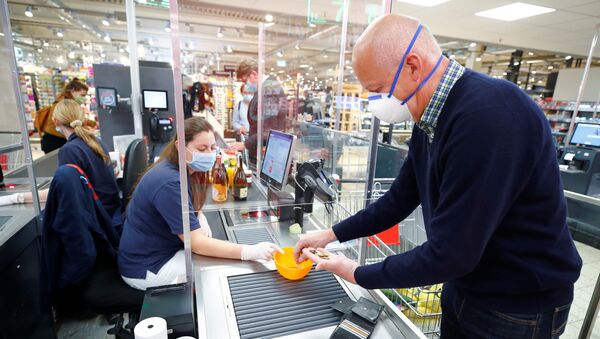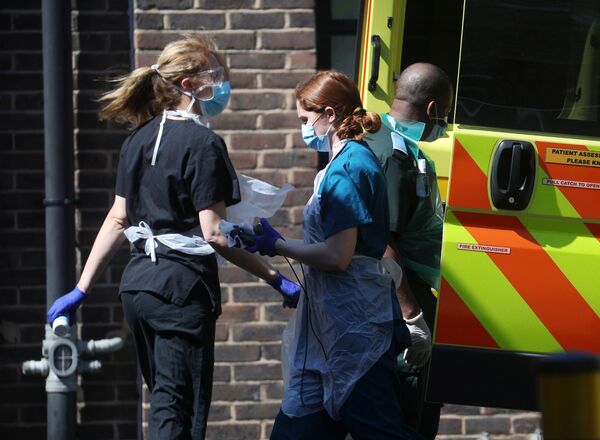Dr Simon Kolstoe, a Senior Lecturer at the University of Portsmouth, looks at the effectiveness of face masks.
Sputnik: Face masks are an important protective item but does the level of protection differ dramatically between various types of face coverings?
Simon Kolstoe: Absolutely. There are essentially three different groups of face coverings. Probably the highest protection are called respirator masks and there are distinct national and international standards around respirator masks, and different classes of them, and so those are the ones that you're more likely to see in sort of biosafety level four labs, or for that firemen use when they're dealing with some very dangerous chemicals. Those are respirator masks. Next down is surgical masks. These aren't labelled PPE; I think in European legislation they're referred to as medical devices and they're basically designed just to divert breath and also to stop droplets and liquids getting onto the face. Then probably the third class would be the homemade masks. These obviously aren't regulated at all are extremely variable dependent entirely upon the design and the material they're being made of and also how they've been worn whether or not people are trained to wear them.
Sputnik: Why is there a debate around the use of face masks?
Simon Kolstoe: So the fact that face masks are routinely worn in laboratories and by emergency services and by medical staff, show that they clearly are protective and thus when you have something like a pandemic infection, which obviously makes sense that if things like face masks are being used by professionals in medical settings to protect them, why shouldn't the public wear them? From one perspective, yes, it makes a lot of good sense that the public wears them but from the other perspective is there's obviously a lack of them to go around so you can't be recommending the public goes out and all buys respirators because then there won't be enough left for medical stuff. I think one aspect of this is just basically a rationing issue - saying that well there aren't enough of these things to go around and therefore what alternatives are there? One alternative is people could use cloth knit face masks instead. The problem is that it's very unlikely cloth face masks provide anywhere near the level of protection that the professional face masks do and indeed that's the whole reason why we have regulations and standards around making the professional face mask because you can't just put together a little bit of material, sew it together, stick it over your face and think it has a similar effect.
Sputnik: Ok so is wearing a face mask more a sign of solidarity in your opinion?
Simon Kolstoe: The evidence is fairly clear. From a physical-biological perspective, all a homemade face mask does is directly change the direction of your breath and that's very different from preventing the transmission of Coronavirus. I think from a physiological biological perspective, it doesn't make a huge amount of difference, however, it is a very notable thing to do. If you go out wearing a face mask absolutely everyone is going to notice. So I think it is actually in some ways more of a psychological or social statement showing people that you're taking Coronavirus seriously and you're taking steps to protect them, to protect yourself and it's such notable things have something over your face - it's such an obvious sort of thing to do that I think that it's very much a statement rather than any form of protection per se.




